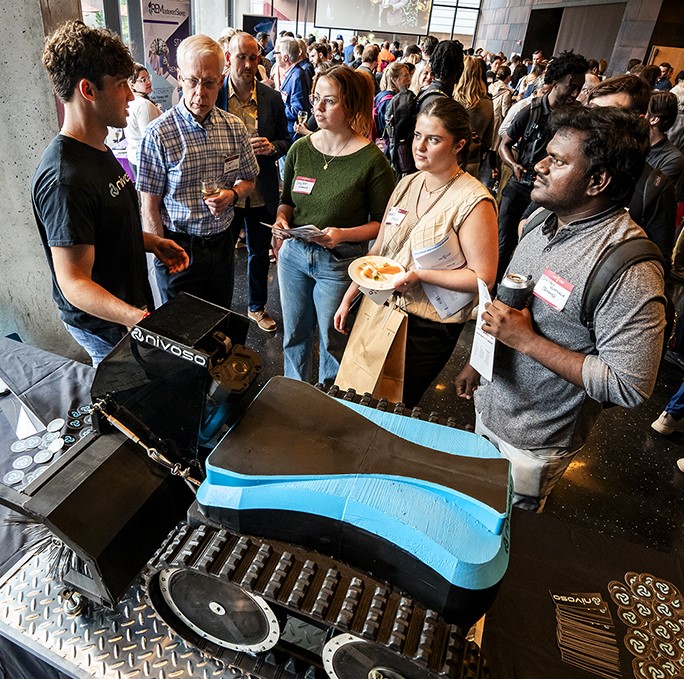
MN Cup Turns 20: An Oral History
Tuesday, September 10, 2024
By Adam Overland
The story of how an idea in the middle of the night became the largest statewide entrepreneurship competition in the nation and a rite of passage for Minnesota’s entrepreneurial community.
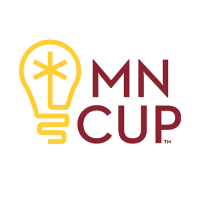
It’s a sunny evening in early June and 90 hopeful entrepreneurs have gathered in the atrium of Hanson Hall with ideas and dreams for businesses as creative as they are varied. There are companies with ammonia-powered engines, aloe vera nutritional water, an app that turns kids’ screen time into confidence-building creative time, and a proactive houseplant care system for the millions of us who can’t seem to keep our houseplants alive, to name a few.
Over the next 90 minutes, each will have just 60 seconds to pitch to judges and others their vision, and why they—whittled from among the more than 3,100 Minnesotan entrants at the start of competition earlier this year—should advance from the semifinal stage of the largest statewide startup competition in the United States.
This is Minnesota Cup, or MN Cup, an event in its 20th year that has grown from around 600 entrants and cash prizes of $30,000 to more than $400,000 in prizes and thousands of entrants. With nine divisions, events throughout the year, and around 200 knowledgeable judges and 100 dedicated volunteer mentors, the MN Cup makes an often lonely and difficult journey a little bit easier.
Dan Mallin, ’95 MBA, and Scott Litman, ’90 BA, are here tonight, as they have been since MN Cup’s beginning. The University of Minnesota alums are longtime entrepreneurs and highly successful business partners who co-founded MN Cup to much fanfare, and they’ve been critical to its success ever since. Also here is John Stavig, ’86 BSB, who briefly retired more than 20 years ago at age 37 after his own successful entrepreneurship journey, only to return and dedicate himself to the success of others as the managing director of the Carlson School’s Gary S. Holmes Center for Entrepreneurship, a position which includes his stewardship of MN Cup.
It’s impossible to cover all 20 years in one story, but we asked Mallin, Litman, Stavig, and several participants about MN Cup at 20 for this oral history.
The Initial Idea
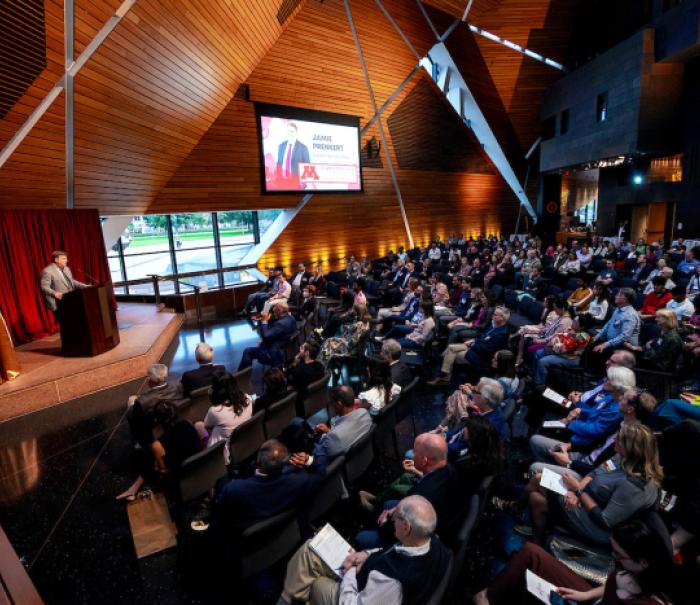
In 2005, business partners Mallin and Litman had sold a company and couldn’t work for 18 months. Admittedly bored, and always thinking, Litman had the initial idea for the Cup.
Litman: I woke up in the middle of the night with the idea. I thought, ‘If I wake up tomorrow morning and I remember this, I’m going to go talk to Dan, and we’ll see what he thinks about it.’
Mallin: We had some successful opportunities and created companies inside Minnesota, but we thought life could be better, it could be easier for entrepreneurs. So how do we help everyone through that process?
Part of Litman’s inspiration for MN Cup came his junior year. The challenge: Design the Computer of the Year 2000, sponsored by Apple. Intrigued, he wrote a paper that landed him third place, giving him the opportunity to pitch the idea in front of Apple co-founder Steve Wozniak, author Ray Bradbury, futurist Alan Kay, and then-CEO of Apple, Jean-Louis Gassée. He realized the competition raised his credibility and made it easier to raise capital, too.
Mallin: So 20 years ago, as we showed up to the Carlson School with this idea, almost simultaneously John Stavig showed up at the University.
Stavig: My first week at the U of M was when it was kicking off, and nobody really knew what it was other than Scott and Dan, who had hijacked a umn.edu URL.
Litman: But very quickly, we became partners with John and he brought so much to the table. Then Jim Campbell—who was previously CEO of Wells Fargo—was the interim dean of the Carlson School. Jim took an instant liking to this and got behind us. We ended up finding great support from the Department of Employment and Economic Development (DEED) that led us to the governor’s office.
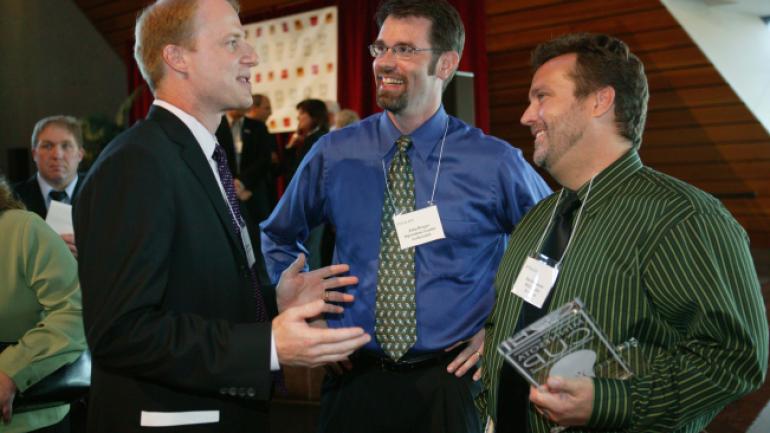
So really, within waking up in the middle of the night to a press conference with the governor of Minnesota, it was a span of just 90 days.
The winner of the first season was ArcSwitch, taking home $25,000 in prize money. Starting in year two—after an idea from Brad Cleveland, whose parents established an endowment for student competitions at the U of M—Stavig implemented a mentorship program that has become a core part of the Cup. Over the next decade, the competition grew.
Litman: The mentorship program is a manifestation of our goal that we should find ways to connect the business community and people who are already experienced, with these people that are new entrepreneurs ... That is a massive reward ... Relationships make you better as an entrepreneur.
Since 2015, the Cup has grown to nine divisions, covering all types of businesses. That’s by design.
Stavig: Early on, we added a student division in 2006. Then, the governor’s office asked us to start a clean tech division in 2009. General Mills stepped up to lead a new food, agriculture and beverage division in 2014 and ECMC led a new education and training division in 2018. So I think there’s an important thread in terms of how we’ve partnered with corporations and adapted to support some of the economic development needs and opportunities for the state. And we’ve made a big push, particularly in the last decade, toward Greater Minnesota and toward supporting women and entrepreneurs of color.
Looking to the Future
Stavig: Since 2005, we’ve helped over 25,000 entrepreneurs get started and get connected with the resources to move their ideas forward. And I think [then and now] it’s because it’s not just a beauty pageant, but something that provides real value and connections to people to help them move forward.
Mallin: So the whole ecosystem of entrepreneurship in Minnesota has matured over the 20 years. But all along, what the MN Cup set out to do and what still sets it apart is it’s just to help the entrepreneurs. It’s free to participate. There’s no equity. There’s nothing that’s taken as part of the process. The purity of the Minnesota Cup—today it’s established as almost a seal of approval going into all of the other types of activities that are happening in Minnesota.
Read more: Meet the 2024 MN Cup winners
Litman: So one of the coolest things in life is: Can you create something that has enduring value? Can you walk away from it, to a degree? And can it perpetuate? We’re so proud of the program and the people that make it better every year. And that’s super rewarding because the program is far better today than it was five years ago, 10 years ago, 15 years ago, and it just keeps getting better. I love it.
Mallin: Now it’s how can we mature and continue to grow the Cup. We would love to see our great sponsors continue to endow money and capabilities so that we can spend less time on the raising funds side of this. The MN Cup competition runs from March to September, but it’s a full-time thing. We’re out educating, and we want to do more and more to help various communities bring things forward.
Six former participants recall their experiences with MN Cup.
Shawntera Hardy
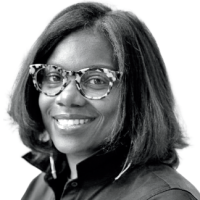

- Co-founder
- Plural [formerly Civic Eagle]
- 2015 Impact Division winner
We provide policy intelligence tools to make public policy creation more transparent, responsive, and inclusive. We were a scrappy team [in 2015] with this idea that really did not have the infrastructure around it. And I remember learning about MN Cup and talking to my co-founders and saying, ‘It’s not even about winning. If we can get in an environment where folks are there helping you to formulate your thesis, helping you to think about your customer, and helping you to think about the future ... we would be set.’
That list—names of just highly qualified folks, from finance, to communications, to marketing—is rich. We had the opportunity to pick [Carlson School Board of Advisors member] Mary Pat Blake, who literally became one of us. Being able to have her in our corner ... that introduction was priceless.
Beth Fynbo
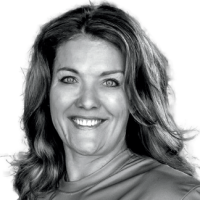
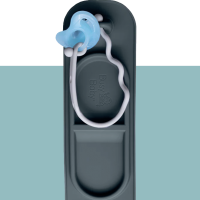
- Founder
- Busy Baby [formerly Busy Baby Mat]
- 2020 General Division winner
I participated in MN Cup in 2018, 2019, and won the general division in 2020. When I started in MN Cup, I only had a prototype that was not even presentable to put in front of people. And since MN Cup, I’ve been on Shark Tank. We’ve grown to a multimillion-dollar business [Busy Baby, a maker of multiple products that stop babies from dropping and throwing their things on the ground] and we continue to grow.
For me, the benefit—and especially doing it for three years—was that it was a way for people who knew what they were doing to hold my hand through the entrepreneurial process, which I did not know how to do ... Participating in MN Cup helped me create a business plan, learn how to talk about my business, and have confidence in what I was doing. And the mentorship was amazing. I still work with the same package developer that I worked with through a mentor at MN Cup.
Nick Beste, ’09 BSB
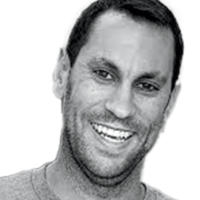
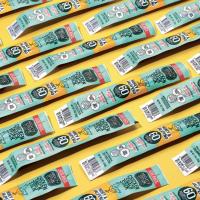
- Founder
- Mighty Spark [formerly ManCave]
- 2009 Student Division winner
We were the first home party for men, so picture like Mary Kay or Avon, but with more male-centric products. Winning [the division] and the prizes was great. But I think it’s so much more helpful than that. I think the networking and the process of putting together a business plan ... it’s tremendously helpful regardless of the outcome.
Many of [the judges] stayed in touch with me for years and continued to mentor me afterwards just on their own, out of the goodness of their heart, which is really cool.
And I don’t think there’s enough words I could possibly say about John Stavig. There’s nobody else who’s helped me even one percent as much as he has throughout my life as a person and in my career. He’s incredibly selfless. I remember so many times thinking, ‘All right, this is the time he’s not going to take my phone call or he’s going to tell me to go away.’ And he always took it. He was always there.
Deepinder Singh
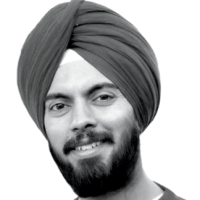
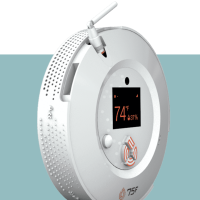
- Founder and CEO
- 75F
- 2014 Grand Prize winner
A lot of people compete for the money, which is very helpful when you are a small company. But in my opinion, the biggest thing was actually the PR. The recognition that [75F, a building management company that helps buildings be more energy efficient] got for having won and the number of doors that it opened was quite amazing. [It] led us to investments from Steve Case of AOL. And we have investments from people like Breakthrough Energy Ventures, founded by Bill Gates and Jeff Bezos, and from one of the world’s largest climate-focused funds.
When we started, we were actually just a company of three people here in the U.S. We are well over 200 people now with offices in multiple countries. MN Cup was a turning point for 75F.
Deling Chen
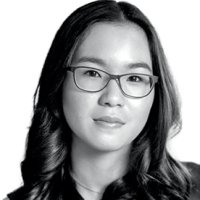
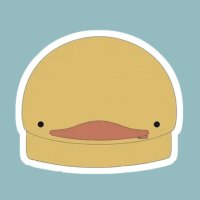
- Founder
- Sock Munch
- 2022 Youth Division winner
One of the first lessons [in entrepreneurship] is to think about a problem that you face every day. And I realized that I lost a lot of socks, and if you think about it, if you lose one sock, you lose both. I did some research and found that people can lose up to 15 socks a year. Sock Munch solves the issue while teaching kids organizational skills.
[Winning at age 15] felt very surreal to me, and I was also really thankful for my parents and the mentors that I’ve had. I was paired with a mentor that especially helped me with marketing. And I’m especially thankful for the community that MN Cup helps to foster, especially among the youth competitors. A lot of us really supported each other and gave each other ideas on ways we could grow our business.
Jules Porter
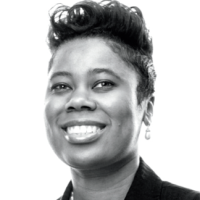

- Founder
- Seraph 7 Studios
- 4-time MN Cup participant
We make video games for PlayStation, Xbox, and Nintendo ... And the whole reason for us doing this is that we are absolutely sick of the way Black people and women are portrayed in games ... Instead of the Black character having to be a gangster, or mobster, or drug dealer ... I want characters who look like me and heroes who look like me. And [it matters] to kids in the Black community and to kids outside the Black community when it comes to how we see ourselves in this world. This is actually going to be the first video game ever that has more than one playable Black female character.
I wanted to be a part of the Minnesota Cup because I want access to expert people to help me. I really want this business idea to be vetted thoroughly because I really want it to be successful ... so that I can just move to the next level, not only of the competition, but for my business.
